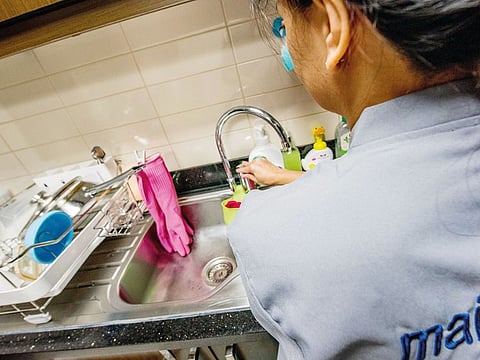Domestic help shortage looms in Kuwait as 70% of contracts expire
Activist sounds alarm over supply-demand imbalance

Cairo: Around 70% of domestic workers’ contracts in Kuwait have expired, raising concerns over a new shortage of labour in the sector.
Kuwait has recently sought to diversify domestic labour markets and signed a memorandum of understanding with Ethiopia in May.
Although the MoU was approved by Kuwait last October, a related decree has yet to go into effect.
Activists have warned that the “slow implementation or delay” in recruiting Ethiopian workers will affect the Kuwaiti market and result in a shortage of labour.
“Talks with the Ethiopian side on the employment of domestic workers ran for more than four years. After the issuance of the decree (approving the MoU), we find implementation slow due to overlapping jurisdictions,” Bassam Al Shammari, a Kuwaiti expert on domestic labour affairs, said.
“There is a big increase in demand against a significant decline in supply due to a shortage of domestic workers to meet the needs of the local market as well as a lack of MoUs with new countries,” he told Kuwaiti newspaper Al Qabas.
The total number of domestic labour in Kuwait until the end of last June reached 833,000, of whom 54% were female workers, he said, citing recent statistics.
Filipinas topped the list with 170,000, followed by Sri Lankan female workers with 102,000.
He noted that contracts of the majority of domestic workers currently in Kuwait have expired.
“Most problems facing domestic labour recruitment agencies at present are the expiry of their contracts. About 70% of the house workers in Kuwait have expired contracts and will leave the country. This has led to an imbalance in supply and demand at the market, “Al Shammari said.
Last June, Kuwait, a country of 4.9 million people, lifted a visa ban on domestic workers from the Philippines imposed after a labour dispute. Kuwait said the lifting of the ban came after reaching an agreement in talks to resolve the row.
Sign up for the Daily Briefing
Get the latest news and updates straight to your inbox



